
Arquivo para June, 2022
Anthropotechnics and the two forms of domination
If there is a close relationship between Sloterdijk’s thought and Heidegger and some parallel with the thought of Hans Georg Gadamer, the link between German thought and names such as Ernst Cassieer, Max Scheler, Arnold Gehler and Hellmuth Plessner leads us both to a philosophical anthropology and to the returns to an almost forgotten perspective of the “sciences of the spirit”.
and Heidegger and some parallel with the thought of Hans Georg Gadamer, the link between German thought and names such as Ernst Cassieer, Max Scheler, Arnold Gehler and Hellmuth Plessner leads us both to a philosophical anthropology and to the returns to an almost forgotten perspective of the “sciences of the spirit”.
Of these authors, some very close to the Nazi projects, he takes advantage of the idea of man as a deficient being, who does not have natural means (claws, teeth or horns, for example) to defend himself and must seek in artificial means, but does not differentiate them from “spiritual” means
It is not by chance that his work draws parallels with Nietzsche’s “Dead God”, the criticism of Heidegger’s humanism, but his work seeks an original anthropogenesis, and his anthropotechnics are inserted in it, especially what is written in “You have to change your life. ” where he differentiates two forms of artificial production of human behavior that have flourished since antiquity in the so-called “high cultures”, undergoing a profound transformation in modernity, the first is the production of some men by other men, which he calls techniques of “leaving -se operate”, while the second is the production of men from themselves, which would then be the “autos” – the techniques of Operation” (Sloterdijk, 2009).
On these two types of anthropotechnics, he proposes to rethink, on a basis of philosophical anthropology, the Foucauldian concepts of “biopolitics” and “aesthetics of existence”, with similar ideas in these two poles, the domestication of the other, hence his idea of the human park, and self-colonization, which his disciple Byung-Chul Han will call self-exploitation.
Sloterdijk’s basic difference is the idea of ”Improvement of the world” (Weltverbesserung) based on the improvement of populations that dominates Western theory since Plato is exchanged for a “improvement of the self” (Selbsverbesserung) and does so with the “technologies of the self”, and for this men do it as a “society of exercises”.
For Byung-Chul Han, these exercises are controlled by technologies of the “self” that each time refer to psychological exercises, and so he calls it “psychopolitics”, since they believe that it is self-realization that transforms their lives, although they practice a “self-exploitation”.
Both Foucault, Sloterdijk and Byung Chul Han, and this is at the origin of Nietzsche’s thought, that the emergence of ascetic practices provoked an anthropogenesis that divided humans into two categories: the virtuous and the non-virtuous, while in the exercise society, there is an unskilled asceticism.
É Chul Han draws attention to the categories of active life and contemplative life, based on the thoughts of Hannah Arendt and Saint Gregory of Nazianzo (or Nazianzen), Sloterdijk is stuck in his criticism of Scheler, who sees only the person as “ something” besides his acts, and in this he sees a “spirit”.
SLOTERDIJK, P. (2018) Tens de mudar sua vida. Lisboa: Relógio d´Água.
Being, clearing and humanism
In the context in which Heidegger wrote Being and Time,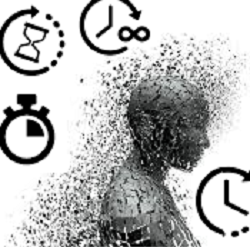 it is what remains hidden within a whole, where being should emerge, this is appropriate to the discourse of modernity where there is a reduction to human material life, and a division between what it is subjective and objective in Being.
it is what remains hidden within a whole, where being should emerge, this is appropriate to the discourse of modernity where there is a reduction to human material life, and a division between what it is subjective and objective in Being.
This fragmentation emerges only in one part, most of the time it is opposite to the entity to which the being belongs, explaining in a different way, making a joke: “the being of the entity”.
Being and being are intertwined, being is conditioned by being, since it has a broader sense, this broader definition Heidegger defined as Dasein, or being-there to say this fact that there is a cosmovision of being in relation to a context broader scope of your experience.
However, far from a solution to the paradox of modernity, what Heidegger called the manifestation of being through language, including poetics as one of the functions of language, making there an abode of being, which would preserve the ex-tactician naming in the clearing.
The clearing would be nothing more than the truth of being, that is, it would remove us from the abyss of our ex-sistent essence, and the clearing would give us back the “world” and language is the advent that reveals and clears up being itself, but Sloterdijk responding to its clearing in Heidegger’s Letters for Humanism, he makes an answer in the book Rules for the Human Park, saying of the failure of this clearing and of humanism.
This clearing is neither the habitat nor the environment, and this one finds itself in rupture with nature, where it identifies the failure of the human being as a shepherd of the being, whose essence would not be to take care of the sick, but to keep his flock in the clearing, the clearing is the open world and, in this case, the task is used in the being freely chosen and impregnating itself with the being itself.
Before advancing in the criticism, it is necessary to emphasize Sloterdijk’s praise of Heidegger, there is a praise of his criticism of Humanism, reconceptualizing it and seeking the essence of man in this system.
Sloterdijk’s starting point is Heidegger’s critique, where he seeks a better understanding of what man is within this humanism, and a greater understanding of the clearing.
Subjectivity is no longer a mere grammatical fundamental and becomes a foundation as a human representation, whether of its feelings or its essence, and of man in this system.
Sloterdijk’s starting point is Heidegger’s critique, where he seeks a better understanding of what man is within this humanism, and a greater understanding of the clearing.
Subjectivity is no longer a mere grammatical fundamental and becomes a foundation as a human representation, whether of its feelings or its essence, and thus the foundation becomes the self, thus modernity opens an object-subject relationship.
Everything, then, is for man, it is anthropocentric and the world opens up to domination, for science and technique to dominate it, grounding all knowledge, but what is the knowledge about Being.
By exchanging this vocabulary from humanism to his own (subjectivity) Heidegger states, according to Sloterdijk, that the school of domestication of man, which is really a school, the pedagogical project initiated by the Romans, is a failed school, domestication was not possible.
Two of Sloterdijk’s successes are an astonishment for the future of civilization, first a positive necessity that is co-immunity, the idea that only a joint defense of the Being overcomes the self, the other dangerous is that the domestication project has failed and the clearing is an imperative, not just a humanist narrative.
Sloterdijk says textually: “the history of the clearing cannot be developed only as a narrative of the arrival of human beings to the houses of languages” and from there he elaborates his anthropotechnics, will be our next topic.
SLOTERDIJK, P. (2000) Regras para o parque humano. (in portuguese) Trad. José Oscar de Almeida Marques, Brazil, São Paulo: Estação Liberdade.
Winter can be terrible for war
In a videoconference with the G7 in this Monday (06/27),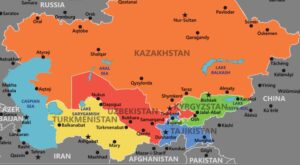 Ukrainian President Volodymyr Zelensky called for the war to cease until winter, always a harder period for troops and for regions at war, this indicates two concerns: an intensification of battles in autumn (in the southern hemisphere it is the spring, from September to December) and possible difficulties in the supply of gas and food in the period.
Ukrainian President Volodymyr Zelensky called for the war to cease until winter, always a harder period for troops and for regions at war, this indicates two concerns: an intensification of battles in autumn (in the southern hemisphere it is the spring, from September to December) and possible difficulties in the supply of gas and food in the period.
On the Russian side, the gas supply cut, which has an obvious financial sacrifice, could mean a collapse in heating systems, domestic and industrial use in the region.
The G7 meeting started Sunday (26/06) with the countries: USA, UK, Germany, Italy, Canada, France and Japan, and the videoconference was held on the 2nd. Fair (27/06), the president also denounced the Russian attack on a crowded mall in the Cremenchuk region, with more than a thousand people.
The battles are still tough in the Dombass region, although there is Russian advance, the cost in troops, armaments and morale has been high for both sides, in short, there is a growing hatred and a possibility of peace increasingly distant.
In a political effort, the president of Russia will make his first trip abroad visiting two former Soviet states: Turkmenistan and Tajikistan, and then he will still meet with Indonesian President Joko Widodo, there are no statements on the subject of the talks, but with It’s certainly a geopolitical issue (see map).
But behind this trip there is a more worrying objective, Putin’s concern with borders, in this case with the countries of Asia, indicates both nostalgia for the former Soviet Union and a long-term warlike concern, this has a dark outline for the future. of humanity.
Of course, there is no one-sided warmongering, also the NATO response has been harsh as Sweden and Finland officially hand over the request for entry into NATO, Moldova and Georgia is also preparing its entry, while Ukraine lives waiting for a late entry.
The scenario is extremely worrying for autumn in Eastern Europe, which is spring in the Southern Hemisphere, a growing concern about the supply of food and oil agitates the entire world, but the biggest nightmare is the war itself and its contours.
Few and heroic voices unite for peace (see our post), the concern about polarization is now worldwide.
Covid on the rise and missing protocols
Although the rhetoric is about the use of masks, distancing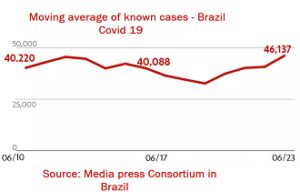 and sanitizing alcohol gel, the ideal would be a serious policy of testing, in practice, the number of cases increases and there is no control.
and sanitizing alcohol gel, the ideal would be a serious policy of testing, in practice, the number of cases increases and there is no control.
The moving average of cases in Brazil is already the highest since March 11 when it recorded 46,895, now it stands at 46,137 with a daily total of 69,231, and with the number of deaths at 347, data from the 23rd because weekend data usually be incomplete, and we have also posted that the likely number is likely to be higher due to tests done in pharmacies and asymptomatic.
The number of deaths, with a variation of 8% in relation to 14 days ago, indicates a trend of stability, in total this indicates that despite the number of cases increasing the lethality is decreasing in percentage, so there is no increase in the lethality of the disease. current active strain.
The outlook is for milder weather until mid-July when a cold wave returns, it may indicate a less infectious period, if the trend continues at the end of July there may be a new high in the current wave, waiting for the new strains are no longer lethal.
According to the newsletter of the Fiocruz Genomic Network (Brazil), the BA.2 variant of the omicron is the dominant one with 63.3% of the samples between June 3 and 16 in Brazil, while the XQ variable (XAG*) appeared in 79 samples, which indicates already a mutation in progress.
The variant XQ was renamed XAG according to the revisions of the Pangolin lineage classification system, in the world there are about 100 lineages of the Omicron BA type.
According to the researchers, cases of reinfection by Sars CoV-2 occur frequently, due to the circulation of variants of concern (VOCs) and so care and protocols must be maintained, not just in rhetoric or on paper only.
The being between the break and the way
Two sentences of Heidegger’s well reflect his essential  questions that make more sense in moments of deep crisis: “We must raise again the question of the meaning of being” and “The human being is an ontologically privileged entity because in its existence its own is at stake”. being.” (in ‘Being and time’), then the path must start from a contemplative pause.
questions that make more sense in moments of deep crisis: “We must raise again the question of the meaning of being” and “The human being is an ontologically privileged entity because in its existence its own is at stake”. being.” (in ‘Being and time’), then the path must start from a contemplative pause.
The agenda is also a moment for the opening of being and an epoché about the meaning of existing, with other men, within a historical and solidary context with nature that is the “house” where it lives, while language is the abode of the human being. To be.
This requires a desert, a change of mentality, leaving the Fatigue Society, facing the pain and risks of a pandemic with another vision (Byung Chul Han wrote the Palliative Society) and finally finding peace in a new way, breaking with the structures of evil.
Only those who have passed through the desert, through the “valley of shadows”, which are now not exclusive to a single Being, but are shadows over the civilizing process around the world, including the possibility of war, hunger and an endless pandemic if we don’t change the posture.
The biblical story tells John the Baptist who went to the desert and announced a new time, which Christians celebrate his birth these days, Jesus also went to the desert where he was tempted and experienced hunger being fed by “angels”, and humanity as will cross your desert
To follow the path it is necessary to go through these questions, answer these questions, as the biblical passage says in (Lk 9, 20), Jesus after being rejected in Samaria and preventing the apostles from coming into conflict with that people, says to the having a disciple who wanted to bury his father: “Let the dead bury their dead, but you, go and announce the kingdom of God”.
This means that we should not look at what is dying, but at what is being born in the middle of the desert, because that is where a new path begins.
The path and being
Even if I have read Heidegger, few have read at least in its entirety O ser e o tempo, or another work that I consider important The origin of the work of art, and the most controversial (at least currently) that is Letters on Humanism, not only because Sloterdijk rejected it, but because thinking about what humanism is today is the most important task in trying to save civilization.
entirety O ser e o tempo, or another work that I consider important The origin of the work of art, and the most controversial (at least currently) that is Letters on Humanism, not only because Sloterdijk rejected it, but because thinking about what humanism is today is the most important task in trying to save civilization.
Just look around, from the pandemic to war, the extreme and sometimes irrational political politicization, and not only all of this, but especially the sharp look and thinking that saw beyond appearances.
There are two good biographies of Heidegger, one by Hugo Ott, which I read in pieces and another that I read and passed on to so many friends, which is Rudiger Safranski’s, both deserve to be read and are not Heidegger.
On the way through the forest, the time that Heidegger spent around the fire, where he smoked his pipe with the peasants and woodsmen of the Black Forest, it is said that in silence, perhaps it says more about Heidegger than his philosophy, says something of the poetry he did not write. , but lived.
It was there in an interview that Heidegger gave to Der Spiegel that he said (not in a religious tone but in a tone of disbelief) he said the phrase: “Only a God can save us”, and he was right.
The rustic and simple hut that Heidegger inhabited during the time he wrote Being and Time, was also his refuge in the time of the Forest Path, and of a short little-known writing that “Creative Landscape: why we perpass in the province”, that it is not a compliment to the province, but the need for a contemplation that urban life had lost, a path similar to the one that a younger philosopher Byung-Chul Han wrote in The Society of Fatigue.
It is written in “Creative Landscape”: “The city dweller thinks he “mingles with the people” as soon as he deigns to have a long conversation with a peasant. At night, on a break from work, when I sit by the fire with the peasants, or at the table in the Herrgott swinkel, then most of the time we don’t say anything. We smoke our pipes in silence”, the note clarifies that Herrgottswinkel is an establishment in the countryside.
So it’s not isolation or provincialism, but a pause to get back on track.
HEIDEGGER, M. (2014) Paisagem Criativa: Por que permanecemos na província , in: Idéia. Campinas (SP)|n. 9.
Path and method
Every path requires a path, a path traced and directed to a 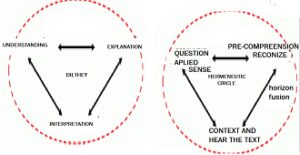 scientific object is a method, there are more complex definitions, but in general they are already linked to a methodology.
scientific object is a method, there are more complex definitions, but in general they are already linked to a methodology.
A widely used definition is “scientific method refers to an agglomeration of ground rules of procedures that produce scientific knowledge, whether new knowledge or a correction or an increase in the given area”.
This type of general rule can fall either into logical positivism, a determinism about the sciences, or into an empiricist reductionism that sees the object under certain parameters.
Both Karl Popper and Thomas Kuhn would argue against this view of method, Popper sees it as provisional knowledge, with successive falsifications, whereas Thomas Kuhn elaborated the idea of changing paradigms that he calls scientific revolutions, either by one or the other science must have theories that evolve over time.
Just as the path itself can lead to falsifications or new discoveries, we prefer the term path, but in order not to fall into sophistry (theories that deny an episteme) it is necessary both to focus on the investigated object and to be open to the new, as in philosophy not it must begin with a hypothesis, but with a question that one seeks to resolve.
Looking at an object imagining something similar to the Other helps, but it does not solve the problem, it is necessary to investigate its variants and its pitfalls, in short, always questioning.
Both ontology and phenomenology, both are philosophically interconnected, and both admit metaphysics, have this reference in relation to the method and its object, as well as reject any methodological and theoretical dogmatism about the investigated object.
Also the historical path is not deterministic, in this respect Hans Georg Gadamer wrote questioning Wilhem Dilthey’s romantic historicism and retracing Heidegger’s hermeneutic circle, thus changing Dilthey’s methodological hermeneutics to which hermeneutics leads the interpretation of cultural changes within a historical context,
Both Gadamer, Antony Giddens and Boaventura de Souza Santos are concerned theorists concerned with developing a methodological approach to verify the fundamental conditions under which paradigm shifts occur.
For this, one must observe the “path”, understand the path and be open to a new horizon.
References:
GADAMER, H-G. (1998) Verdade e método: traços fundamentais de uma hermenêutica filosófica. Petrópolis, RJ: Vozes, Brazil.
GIDDENS, Anthony. (1984) Structuration theory, empirical research and social critique. In: _____. The constitution of society. Cambridge: Polity Press.
SANTOS, Boaventura de Souza. (1989) Introdução a uma Ciência Pós-Moderna. Rio de Janeiro: Graal.
Peace also has protagonists
If war makes its “heroes”, peace makes its “heroes”, three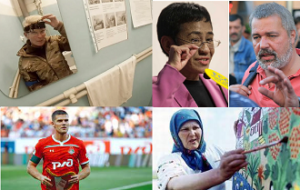 cases were reported last week: Russian journalist and Nobel Peace Prize winner Dmitry Muratov who is auctioning his medal for Ukrainian refugees, the former captain of the Russian football team Igor Demisov, midfielder said that I send a video to President Vladimir Putin in March asking him not to continue with the conflict and the last and most touching was the release of nurse Yuliia “Taira” Pavievska (photo 1), known like Taira, heroine of Ukraine in Mariupol where she also took care of Russian soldiers.
cases were reported last week: Russian journalist and Nobel Peace Prize winner Dmitry Muratov who is auctioning his medal for Ukrainian refugees, the former captain of the Russian football team Igor Demisov, midfielder said that I send a video to President Vladimir Putin in March asking him not to continue with the conflict and the last and most touching was the release of nurse Yuliia “Taira” Pavievska (photo 1), known like Taira, heroine of Ukraine in Mariupol where she also took care of Russian soldiers.
Taira had released a video with images of the “horrors” in Mariupol, and worked in precarious conditions of medicine and equipment, even so he also served the Russians.
Nobel laureate Dmitry Muratov, on the other hand, said that there is less and less independent press in his country, but that he already observes a growing distrust of the population around the war, Dimitry received the Nobel Peace Prize along with Filipino-American journalist Maria Ressa ( photo 2).
The footballer Igor Demisov (photo 3) said that he feared for his life after making his request for peace public, saying “I don’t know. They may arrest me or kill me for these words, but I say things as they are. I even told him: I’m willing to kneel before you”, even though he said he was proud.
The fourth photo is a painting by Maria Prymachenko (photo 4), about 25 works may be destroyed in the small old Ivankiv museum, on the outskirts of Kiev, she made drawings, painted pictures (photo 4) and did embroidery, Pablo Picasso considered her “brilliant” after seeing her works in Paris.
The lamentable statement by former Russian President Dmitry Medvedev, who expects the United States to beg for a discussion of nuclear weapons, and no less regrettable NATO declaration Jens Stoltenberg, that the war will be long, no breath for peace, no word of hope or dialogue.
Peaceful people never tire of asking for peace, the appeal to reason and dialogue, even if it is belated.
The rise of Covid 19 remains
There is no great consensus among experts on the current 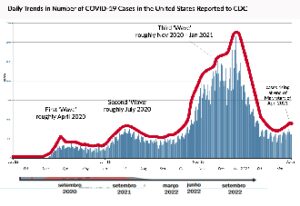 increase in the number of hospitalizations, as some point out that the statistics may be higher than those that appear in the surveys, either because of the omission of data in some states or because of asymptomatic cases that do not enter. in statistics or are treated as self-medication.
increase in the number of hospitalizations, as some point out that the statistics may be higher than those that appear in the surveys, either because of the omission of data in some states or because of asymptomatic cases that do not enter. in statistics or are treated as self-medication.
The various waves had successes and failures, and greater caution is now expected from the authorities.
Infectologist Júlio Croda from Fundação Oswaldo Cruz (Fiocruz-Brazil) stated that one factor was the flexibility in relation to protection measures and another was the seasonal effect of autumn and winter, which we are now just entering, so we concluded it should be extended until August.
Regarding underreporting, infectious disease specialist Rosana Richtmann from Hospital Emílio Ribas in São Paulo, Brazil, said that self-testing in pharmacies helped in terms of the ease of detecting Covid, but underreporting increased, with this the number of cases, which is important for control of the pandemic is limited and can lead to unsatisfactory measures to contain the contagion.
Even considering all this, the 4th. wave continues to advance and for the ninth consecutive day registers an increase, however hospitalizations and deaths must be clearly reported and many health bodies omit them, especially public bodies that are responsible for disclosing them.
A new strain XQ has been monitored in the country since March, isolated cases have already been detected in States of Brazil: Santa Catarina, São Paulo and Minas Gerais, in Rio Grande do Sul local transmission has already been identified in different cities, until the beginning of June there were 25 cases there.
Also abroad there are already cases in the United Kingdom, Germany and Italy, the XQ strain is a combination of the BA.1 and BA.2 variants is more infectious (about 10%), but there are no conclusive results of its lethality.
It doesn’t take an expert to know that as long as there are no serious preventive measures and rigorously applied, the virus continues to circulate and both the contagion and new variants will continue, more incisive attitudes are expected from health control bodies
Being and the Imperishable
It was Justin Saint and Christian Martyr of the second century, who, meeting an Elder, who is in his book Dialogue with Trypho, he understood that it was God’s desire that the soul be immortal and this separated it from Platonism, a philosophical path that had traveled after the Stoics.
meeting an Elder, who is in his book Dialogue with Trypho, he understood that it was God’s desire that the soul be immortal and this separated it from Platonism, a philosophical path that had traveled after the Stoics.
Justin is the first in Christianity to deal with the problems of philosophy in a contemplative and philosophical way, his work was not systematic (Apology I and II), but fundamental to a philosophical path of Christian thought, and influenced many thinkers of patristics of early Christian times. .
For his Christian faith, Justin was denounced and beheaded.
Thus, something imperishable inhabits the Being and is essential to it, the simple contemplation and asceticism that does not contain this premise is incomplete, however the access to this truth depends on a stage of beatitudes, those that are in Matthew 5, I highlight 4 that are contextually (Mt 5,5-9): Blessed are the meek, for they will inherit the earth, Blessed are those who hunger and thirst for justice, for they will be filled, Blessed are the merciful, for they will obtain mercy, Blessed are the pure in heart, for they will see God, Blessed are the peacemakers, for they will be called children of God.
But all this is not imperative to reach an immediate access to the divine, eternity is timeless and in it time is differentiated, it is a Kairos, or a time on the divine clock.
And all this is not separate from everyday life, which contains an “Scent of Time” as proposed Byung Chul Han, a divine humanly lived in each action and thus is not separate from contemplation, but has a different cadence from pure and simple activism.
Christian following is deeper because it requires renunciation, it is not enough to find Jesus or the Divine, in Lk 9:23, the master himself taught: “Then Jesus said to everyone: “If anyone wants to follow me, let him deny himself and take your cross each day, and follow me. For whoever wants to save his life will lose it; and whoever loses his life for my sake, he will save it.”
And this is the hardest and most definitive lesson.

